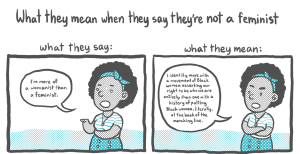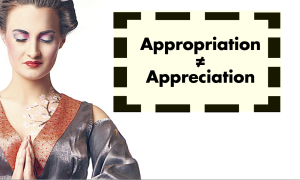
Source: Men Stopping Violence
I recently wrote a piece on my personal blog that highlighted seven men who are transforming masculinity, and I was blown away by how well it resonated.
It shattered all of my daily hit totals and is still bringing in a strong number of people to the blog on a daily basis.
In reflecting on the post, I realized that it was so popular because it touched on an unfilled need.
We need more resources that teach men how to transform masculinity to make it more responsive, less violent, and more inclusive of the tremendous diversity of masculinities that can exist.
And though I detest most everything I see coming out of the Men’s Rights Movement for the ways it is dripping with misogyny, this is one area where I agree with many of its activists: We need a new masculinity!
We need to talk about what a more inclusive masculinity could actually look like beyond “Real men cry, too.”
Now, I rarely agree with those MRM activists about what that masculinity should look like, but in my experience in social justice work, sometimes you have to look for growth points wherever they exist. At least we agree on something!
So let’s start there.
If masculinity needs to be transformed, in what ways can we change it so that men can more fully realize themselves without hurting others?
Here are a few of my suggestions.
Listen More
This one is really hard for me.
I preach listening all the time, but I often struggle to practice what I preach.
If other male-identified people received the same conditioning I did, they were told to make sure that their voices are heard and that they have the last word. Don’t worry about talking over people (especially women). Just assert yourself and your voice!
So a simple way that men can begin to transform masculinity is to listen more.
Obviously it makes sense to start by listening more to women and trans* or genderqueer people, but really, we must do a better job of listening to all people.
Hell, we could use to do a better job of listening to all beings: the earth, animals, plants, as well as people.
The point here is that when we are constantly asserting ourselves into space and conversation, we have no capacity to learn.
When we are constantly asserting ourselves into space, we are constantly in a state of vulnerable power, one where we exert power over others to hide the fact that silence and listening can be terrifying.
After all, listening might mean that we have to actually hear people and thereby change ourselves and our practices.
God forbid that we open ourselves up to learning from the experiences of the world around us through listening.
That might mean that we don’t, in fact, have all the answers, as we were taught from the earliest of ages!
Show More Loving Affection
I remember writing an essay about myself in seventh or eighth grade, and in that essay, I boldly proclaimed, “I still cuddle with my mother!!!”
Then something changed.
I got the message.
You do not cuddle, especially not with your mother.
Now, obviously the messages we receive in middle school and early high school are some of the most extreme, boiled down messages about our identity that we can possibly receive, but the message has stayed with me.
There aren’t many spaces in my life where I share loving affection with people outside of my partner.
Men, particularly in the United States, tend to have a complicated and fraught relationship with touch.
We don’t really show affection to women who we are not in a relationship with or who are not immediate family members, and we almost never show loving affection for other men.
Thus, men have a responsibility to change this. And doing so will be tricky.
After all, we have to consider all of the people who may not want our touch at any given time because of legitimate (fear or triggering of sexual violence) or less legitimate (homophobia) reasons.
So we must start with our most inner circles and move out.
We must tell the men who we love that we do, in fact, love them.
Whether through hugs or pats on the back or even a simple hand on the arm of a friend, we must find a way to show those we love that we care about the healing power of touch.
We must find ways to extend loving affection beyond our partners or immediate family members.
Make Enthusiastic Consent a Daily Value
As I came of age in my sexuality, I was taught that consent was something very specific: If she (because it was never taught in a gender-neutral way) says no or stop, that (probably) means you don’t have consent and (probably) should stop.
Needless to say, my consent education was—well—lacking.
What I’ve come to learn since, though, is that consent is not simply a “yes or no” game in sex. Consent isn’t even something that is restricted to sex or sexuality.
Consent is a daily value that I must practice in all areas of my life.
If I want to give my wonderful nieces or nephew a kiss or tickle them, I need to ask!
If I want to hug someone (particularly someone I don’t know very well), I need to ask!
If I want others to respect my space in any way, I have a right to ask them to do so.
Obviously this tactic in transforming masculinity must go hand-in-hand with showing more loving affection, but it reaches into every aspect of transforming masculinity.
Consent is listening. Consent is nonviolence. Consent is fun and playful and engaging with respect.
Consent is asserting what I need and figuring out how that intersects with, aligns with, and butts up against what those around me need.
Simply put, consent is a value of respect that all of us of all genders could do better in practicing, and it’s vital to any transformation of masculinity.
Cultivate Nonviolence
One of the most common refrains I hear from the Men’s Rights Movement is that there’s not enough attention paid to violence committed against men.
And they’re right.
However, the analysis that says this is part of some large-scale oppression of men isn’t.
But men are indeed the most likely to be violently attacked most anywhere in the world.
Though violent crime has been steadily declining in the United States and Canada, men are more likely to be victims of every form of violent crime except sexual assault, and men are three times as likely to be murdered than women.
(Notably none of the federal government statistics mention that, in fact, those most likely to be victims of violent crime are transgender and gender non-conforming people).
But who is committing those crimes?
Men.
Though it’s not often framed this way, violence is a men’s issue.
And sure, we can use basest, simple language appealing to our hormones and how they make us more violent or aggressive.
Or we can have a conversation about how we’ve been taught to deal with conflict, about how we’ve learned to exercise our frustrations, about how we’ve learned to express our anger.
And then we must cultivate nonviolence in all areas of our lives.
We must abandon violent language about how we “raped that test” or will “kick someone’s ass” for pissing us off.
We must cultivate nonviolence when we’re angry, when we’re frustrated, when we’re lost, afraid, upset.
I use the word cultivate because this is not something we can simply just choose to do one day.
Violence is intricately tied to masculinity in far too many cultures and in far too many men, and extricating the two will take a lifetime or more.
But men, “there is a softness in your throat waiting to be freed.”
Free it.
Be More Inclusive
I’m not sure why, but it seems that somewhere around seven or eight years old and lasting well into adulthood, men make friends by being as exclusive of anyone outside their friend group as possible.
Though it might look a bit different from iteration to iteration, the politics of male social order been built upon exclusion.
Racism, homophobia, misogyny, transphobia, the policing of other men’s gender expression – for far too long these tools of division have been used to create “fraternity.”
Stop it.
Also, let’s stop pretending that the be all, end all of life is “scoring” (read: with women).
I love sex! I love it a lot! I love it so much that I spend a bunch of my time talking to people about how to make their sex lives better.
But I am not more or less of a man because of the nature of my sexual exploits.
Healthy, positive sexuality must be one that divorces masculinity from virility.
And while we’re at it, let’s quit the “real men” language.
Saying “Real men _______,” even when well intentioned and trying to send a positive message, only serves to reinforce the restrictive foundation of masculinity.
Instead, let’s work to build a more inclusive masculinity, one that values people of all genders in their identities, in their expressions.
If a man loves hunting, great! If a man loves knitting, fantastic! Want to watch the Broncos while baking a delicious frittata? Go for it!
So long as your expression of masculinity isn’t hurting anyone else or serving to restrict other men in their masculinity, it’s the perfect the way it is.
Giggle More
I feel like we’ve made tremendous progress in debunking the “masculinity = stoicism” messaging that many men have gotten for a long, long time.
But when’s the last time you saw a man that you admire and respect fall to the floor in a fit of giggles (especially that wasn’t induced by someone else’s pain, getting hit in the nuts, or because of some humor that excludes other people)?
I know I don’t see it often enough!
Men, we need to giggle more.
We need to do more than laugh more. We need to fall into one of those deep, belly laughs that bring endless health benefits. And we need to try to giggle more in ways that don’t come at others’ expense.
Not sure how? Start with this video. Seriously. I just busted a gut in a coffee shop.
Essentially, laughter is good self care, and men tend not to do a lot of good self care (does anyone any more?).
So before we go creating a bunch of super awesome self-care plans, let’s start with a few good belly laughs.
Teach Our Youth
One of the things that brings me most joy in this world is remembering that I am a fairy god mother to a little person named Jett.
When I first heard that my good friends would name their son Jett (short for Jettison), I was a little skeptical. But then I heard the explanation.
You see, Jett’s dad Brandon recognizes that the men in his family have struggled with addressing anger and healthy and nonviolent ways. And from the moment he was born, Brandon wanted Jett to know that he could go another way.
So he named him Jettison after an old biblical teaching that says we must learn to “jettison our anger like cargo from a heavily laden ship.”
Brandon is a wise man.
He knows that if we want to transform masculinity and if we want to offer men agency in how they express their full selves, we have to start with our young people.
Young people of every gender need to hear from us that they can express their gender in whatever way makes them happy and fulfilled so long as it doesn’t hurt or restrict any else!
There are countless ways to do this, but it’s simple: We empower our youth to realize a different masculinity, and it will happen.
What Would You Add?
Obviously there are countless ways that we could transform masculinity for the better, plenty of ways to be that guy. Thus, I would love to hear from you!
What do you think needs to be added to the list?
I would particularly love to hear from male-identified folks about what you are doing or can do to transform masculinity.
After all, masculinity cannot be transformed if one or ten or one hundred men are the ones acting for a new masculinity. It must be a movement.
And the movement is afoot. How are you a part of it?
Want to discuss this further? Login to our online forum and start a post! If you’re not already registered as a forum user, please register first here.
Jamie Utt is a Contributing Writer at Everyday Feminism. He is the Founder and Director of Education at CivilSchools, a comprehensive bullying prevention program, a diversity and inclusion consultant, and sexual violence prevention educator based in Minneapolis, MN. He lives with his loving partner and his funtastic dog. He blogs weekly at Change from Within. Learn more about his work at his website here and follow him on Twitter @utt_jamie. Read his articles here and book him for speaking engagements here.
Search our 3000+ articles!
Read our articles about:
Our online racial justice training
Used by hundreds of universities, non-profits, and businesses.
Click to learn more




















